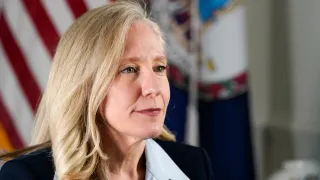November 15, 2022
Roberta Flack Has ALS, Now 'Impossible to Sing,' Rep Says
READ TIME: 2 MIN.
A representative for Roberta Flack announced Monday that the Grammy-winning musician has ALS, commonly known as Lou Gehrig's disease, and can no longer sing.
The progressive disease "has made it impossible to sing and not easy to speak," Flack's manager Suzanne Koga said in a release. "But it will take a lot more than ALS to silence this icon."
The announcement of the amyotrophic lateral sclerosis diagnosis comes just ahead of the premiere of "Roberta," a feature-length documentary debuting Thursday at the DOCNYC film festival.
Flack is known for hits like "Killing Me Softly With His Song" and "The First Time I Ever Saw Your Face," the latter of which catapulted her into stardom after Clint Eastwood used it as the soundtrack for a love scene in his 1971 movie "Play Misty for Me."
The release says that the Grammy-winning singer and pianist, now 85, "plans to stay active in her musical and creative pursuits" through her eponymous foundation and other avenues.
The Antonino D'Ambrosio-directed documentary will be in competition at the festival and available via DOCNYC's website for a week after, before airing on television Jan. 24 as part of PBS' "American Masters" series.
Flack also plans to publish a children's book co-written with Tonya Bolden, "The Green Piano: How Little Me Found Music," that month. The North Carolina-born, Virginia-raised Flack is the daughter of pianists and classically trained herself – her talent won her a full ride to Howard University at just 15.
"I have long dreamed of telling my story to children about that first green piano that my father got for me from the junkyard in the hope that they would be inspired to reach for their dreams," Flack was quoted in the release. "I want them to know that dreams can come true with persistence, encouragement from family and friends, and most of all belief in yourself."
The documentary's television debut and book's publication kick off 2023, which also will see the commemoration of the 50th anniversary of her fourth album, "Killing Me Softly," with a reissue. Her label for the first three decades of her career, Atlantic Records, is also celebrating its 75th anniversary.
Flack had a stroke in 2016 and spoke to The Associated Press a little over two years later about returning to performing. When asked if she'd sing one of her old hits at a then-upcoming event, she quickly retorted: "There's no such thing as an old hit," preferring the term "classic" instead.
"I could sing any number of songs that I've recorded through the years, easily, I could sing them, but I'm going to pick those songs that move me," Flack said. "Now that's hard to do. To be moved, to be moved constantly by your own songs."






